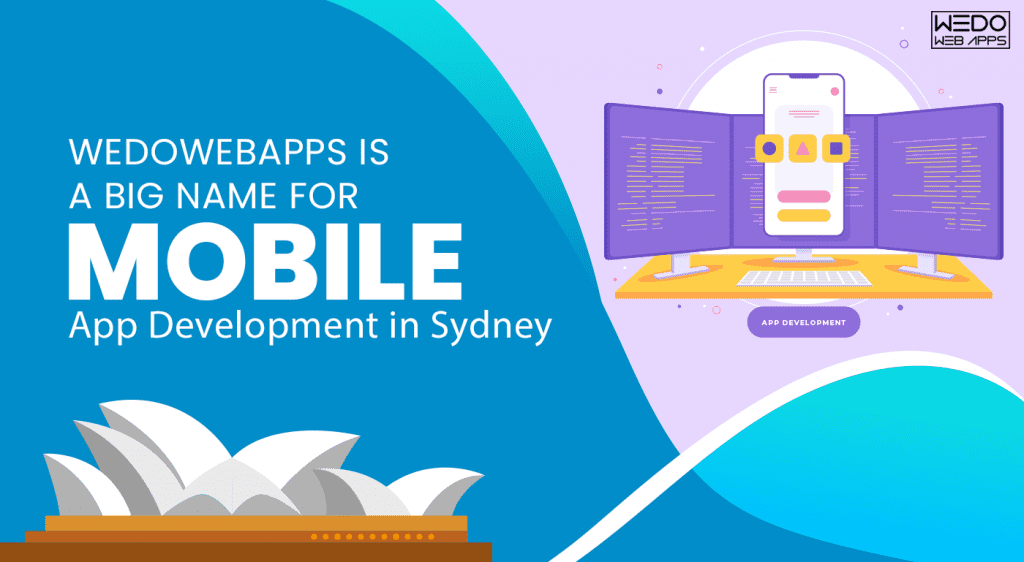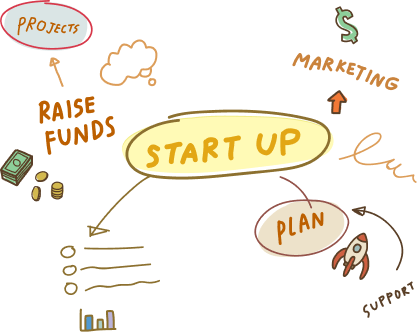18 Jun, 2022 | Mobile App Development
Mobile App Development in Sydney

Mobile App Development Sydney and the complete product development lifecycle
Project Discussion
The mobile application development at WeDoWebApps LLC begins with the discussion of the project. At this stage, we will rectify you all the needs regarding the application. Our expert team of consultants will note down all the requirement which you have from the app. The same details, we will share with the developers to whom we will assign your project. In this manner, the app which will result will be as per your requirement.Development of a Prototype
Before making the real application, we prepare the prototype first. The prototype gives us an idea of the things to take care of while coding for the original form. Apart from that, we will also show the prototype to show to take up your recommendations. Hence, you will be able to get a real feel for the application before it is developed. Once you confirm the prototype, we will proceed with the development of the original mobile app.Recording your feedback
Not only for the prototype, but we will also frequently ask for your recommendations even while developing the mobile application. In this way, you will be getting continuous updates, and you can also tell us about the things which you wish to change. Due to this, the mobile application which we will create for you will be as per your requirement and wishes.Making changes as per the requirement
Our efficient developers are compatible with the mobile app development environment. Hence, we will change anything you wish us to improve. We are having a lot of templates, themes as well as colours in our digital library. Therefore, you shall feel free to decide on what do you want for your app. It will be very much easier for us to develop the app as per the notion of your business. This will attract the target audience you wish to get, and they will use your app for a longer duration of time.Testing and Delivery
At WeDoWebApps LLC, we take the quality of the applications as supreme. This has led us to the use of safe practices for mobile app development. Perhaps, this is the reason why we embark on the testing of the app before delivering it to you. Our Mobile app development Sydney unit will take care that the app we will create for you will be offering better results to your end-users.Frequently Asked Questions
Mobile app development is the process of creating software applications that run on mobile devices such as smartphones and tablets. This involves designing, developing, testing, and deploying the app to the app store for users to download.
A mobile app can help your business in numerous ways such as: Increasing brand recognition and customer engagement Providing a more convenient way for customers to access your products or services Improving customer loyalty and retention Generating more revenue through in-app purchases or advertising
There are three main types of mobile apps: Native apps: These are built for specific platforms like iOS or Android and offer the best performance and user experience. Hybrid apps: These are a combination of native and web apps and are built using web technologies like HTML, CSS, and JavaScript. Web apps: These are not downloaded from the app store and run through a mobile browser. They are often less expensive to develop but offer a less optimized experience.
The time it takes to develop a mobile app can vary depending on factors like complexity, features, and design. On average, it can take anywhere from 3 to 9 months to develop a mobile app.
The cost of developing a mobile app can vary depending on factors like complexity, features, and design. On average, it can cost anywhere from $10,000 to $100,000 or more.
When choosing a mobile app development company in Sydney, consider factors like their experience, portfolio, pricing, and communication skills. Look for a company that has experience developing apps similar to what you need and has a good track record of delivering quality work.
The process of developing a mobile app typically involves the following stages: Discovery and planning: This involves understanding your business needs, defining goals, and planning the project. Design: This involves creating wireframes and mockups of the app's user interface and user experience. Development: This involves building the app's functionality and features. Testing: This involves testing the app for functionality, usability, and performance. Deployment: This involves submitting the app to the app store for users to download.
After the app is launched, it's important to monitor its performance and gather user feedback. This can help you identify any bugs or issues that need to be addressed and make improvements to the app over time.
Marketing your mobile app can involve a variety of tactics such as: App store optimization to improve visibility in app store searches Social media advertising to target specific audiences Influencer marketing to reach a larger audience Content marketing to educate users about the app's features and benefits
The most popular mobile app development platforms are: iOS (Apple) Android (Google) React Native (Facebook) Flutter (Google)

